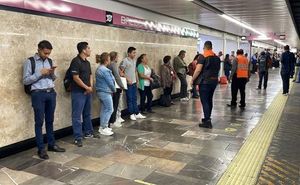On March 10, 2025, McDonald's Japan announced it would implement price increases effective March 12, reflecting rising operational costs. This decision, which affects individual menu items like hamburgers and Happy Sets, has sparked widespread public outcry, particularly from families accustomed to the brand's once-affordable offerings.
The price hike will see hamburgers increase from 170 yen to 190 yen, and the popular Happy Set will rise from between 490 to 520 yen to now cost 510 to 540 yen. McDonald's explained their decision is due to skyrocketing energy costs, increased logistics expenses, and rising personnel costs. This shift is seen as necessary to maintain the quality of service and food delivery.
The news triggered significant backlash on social media, especially from mothers who regularly buy Happy Sets for their children. "また値上げ……" (Another price increase...) encapsulated the feelings of frustration among parents, highlighting how these adjustments strain their household budgets.
Many families expressed nostalgia for the days when fast food was more affordable, recollecting the era when hamburgers were sold for just 65 yen. One long-time customer reminisced, "65円だった頃が懐かしい" (I miss the days when hamburgers were 65 yen), illustrating the stark price differences young parents face today compared to their carefree childhoods.
"気軽に行けなくなった" (It’s no longer easy to go) was another common sentiment among moms, emphasizing how quick visits for fast food are now significant expenses. The joyful moments of spontaneous visits are being replaced by budgetary concerns, altering the relationship between families and the iconic fast-food chain.
McDonald's Japan's approach to revising prices isn't without precedent. The history of the hamburger pricing reveals the gradual yet consistent adjustments. When the first store opened its doors in Ginza, Tokyo, back in 1971, the hamburger was priced at 80 yen. Over the years, adjustments led the price to peak at 230 yen by 1985. Yet, it took sharp decreases to reach 62 yen around 2002 before the recent spate of increases began.
This latest change is part of McDonald's long-standing effort to adapt to economic pressures. "昨今のエネルギーコスト、物流費、人件費の上昇を受けてのものとなり..." (This is due to rising energy costs, logistics expenses, and personnel costs) affirmed the company's commitment to continued service excellence even amid financial challenges.
While McDonald's insists the changes are necessary for its operational sustainability, the reality is stark: families ponder how to manage their dining budgets with these rising costs. Many mothers noted this price alteration impacts their usual dining habits, complicate dinner plans and forcing them to compare expenses at rival fast-food chains.
The feelings of nostalgia and loss were prevalent throughout community dialogues. Families recalled times when the price of convenience was low enough to visit without heavy consideration—a direct reminiscing of the past. Some older patrons even likened their experiences at McDonald's during their youth to current family-friendly locations like casual dining spots.
Notably, many commenters on social media reflected on the communal essence of McDonald's. One father pointed out, "当時は携帯電話があまり普及していなかったので、友達と交流するには“直接会う”しかなく," (Back then, with cell phones not common, we only had direct interaction with friends). This nostalgia speaks volumes about the changes not just within the pricing structure of the meals but also the very culture surrounding the fast-food experience.
The rising prices add weight to conversations for many families, who relied upon McDonald’s as not only for its products but as safe social spaces for children to bond. Parents hope to continue creating memories for their children amid the financial strain of fast food purchases.
With approximately 580 outlets expected to feature differing prices, including airports and amusement parks, the fluctuations are causing even greater concern. Many families wondered if they would have to reconsider their choices each time they approached one of the golden-arched establishments, weighed down by the realities of modern economics.
The dilemma stretches beyond just pricing; it's about social connection, nostalgia, and the fabric of family traditions. Amid changes, families wish to maintain their cherished experiences, albeit within the constraints of the current economy. Only time will tell how McDonald’s navigates these challenging waters as the marketplace adjusts to these significant price increases.
Despite the new prices, it is clear McDonald's still possesses unique value, and many families, even amid fleeting frustrations, find their reasons to indulge remain unwavering. This duality is something McDonald's must navigate moving forward as they seek to balance the scales of affordability with operational viability.



